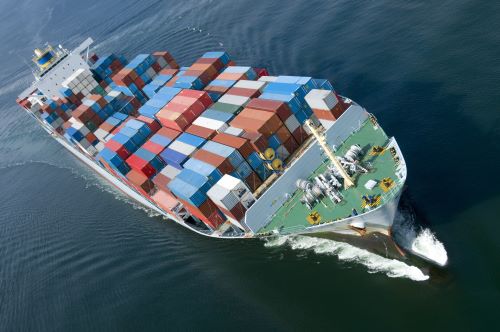Like most vehicles, boats and ships require fuel to operate. Unlike automobiles and aircraft, however, marine vessels must contend with saltwater, an element that can quickly degrade certain materials that are not strong enough to resist it. And you certainly wouldn’t want your fuel tanks degrading when you’re out at sea. That’s why aluminum is commonly used in marine fuel tanks—it has the necessary strength to withstand constant exposure to saltwater.
Strength
While stainless steel is sometimes used in marine fuel tanks, it is a material that can corrode over time due to exposure to saltwater. Aluminum is the preferred material for marine applications because it is lightweight, naturally strong, and anti-corrosive. To enhance performance, aluminum can be treated with a protective polymer coating that will further inhibit oxidation, tarnishing, and staining.
High Density & Low Melting Point
Aluminum gets its strength from its high-density properties. This high-density makeup, coupled with aluminum’s low melting point, makes it ideal for marine fuel tanks, as it can endure the fabrication process without losing its ability to resist water damage. This means that aluminum fuel tanks can withstand the intense forces that a ship can experience at sea and not leak—surely a benefit that offers peace of mind to every captain and crew.
Malleability
Another reason why aluminum is commonly used in marine fuel tanks is that it can be easily fabricated and shaped by CNC plasma or waterjet cutting. It is a reasonably “soft” metal that can be worked into nearly any shape. And that’s good for fabricating marine fuel tanks, as each vessel is different and will have a unique space where the fuel tanks must precisely fit into. Aluminum’s natural malleability makes it easier for professional fabricators to craft fuel tanks in the exact shape and size required.
Tips for Fabricating Aluminum Marine Fuel Tanks
When fabricating aluminum for marine fuel tanks, custom fabrication companies must ensure the sheet meets the recommendations from the American Boat and Yacht Council (ABYC), which specifies:
· Grade 5086, 5083, or 5052 aluminum
· A minimum thickness of 0.90 inches for small tanks
· A minimum thickness of 0.125 inches and maximum thickness of 0.250 inches for large tanks
Blueprints must be closely followed to ensure the fuel tanks are the right shape and size and have been properly coated with anti-corrosive protection. Once the tanks are complete, you must run a pressure test to confirm they do not leak.
Heavy-Duty CNC Plasma Cutting Equipment
Machitech is a leading innovator of CNC plasma cutting machines. Our solutions are made for custom fabrications and can help your shop perfect and speed up production of aluminum marine fuel tanks. Plus, our plasma cutting tables include free and unlimited support for life from our knowledge team. To learn more, contact Machitech today.
 English
English  Français
Français 
